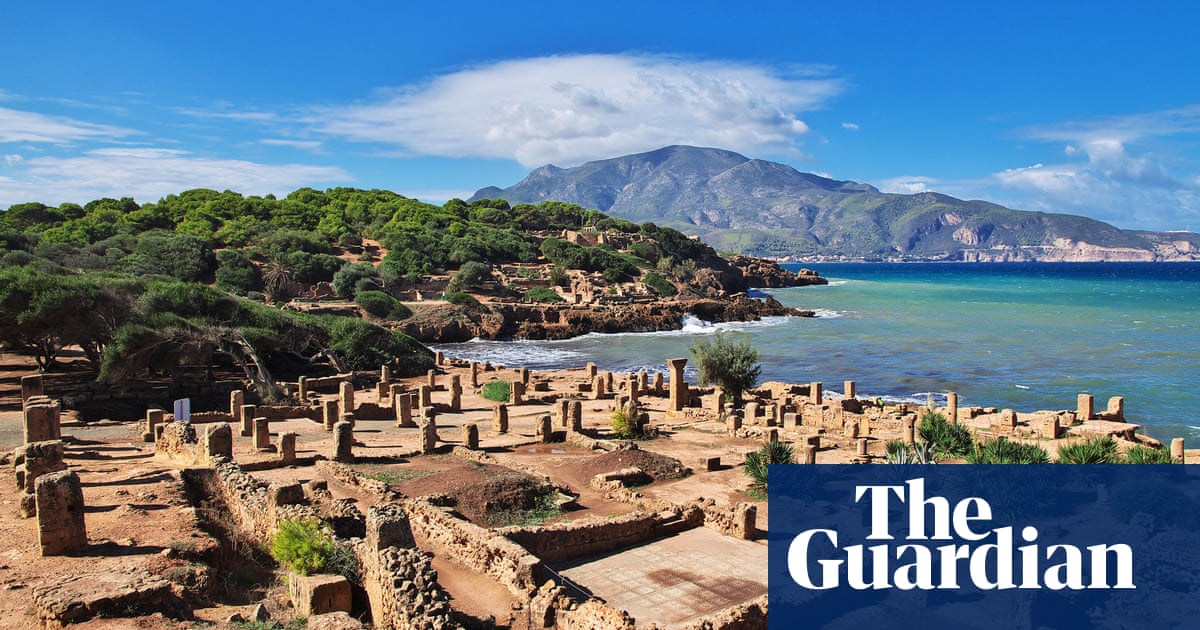Our writer discovers ‘a young, exciting and proud nation’ – little known to western visitors – amid Roman ruins and remnants of war
Waking after a night at sea, I was elated to look out of the cabin window and see the city of Algiers, blazing white. The splendid capital rises from its Mediterranean bay in improbable layers, from the arches of the French colonial port to the warren of the Casbah, to the clear blue sky, all overlooked by the Martyrs’ Memorial, which represents the country’s fight for independence. “Never was town more nobly placed,” wrote Edith Wharton, who visited by yacht in 1888. In the cabin, my toddler son was still sleeping. I looked at him and thought, we’ve made it, baby: all the way from West Yorkshire to north Africa by rail and sea in 48 hours.
The journey would have been familiar to British travellers of the 19th century who arrived here by steamship, but these days few foreign tourists come to Algeria. Political unrest since the civil war of the 1990s, the administration’s focus on internal matters and a lack of infrastructure have knocked it completely off the tourist map. So when I was invited as a guest of the British Council Algeria as part of a literary exchange, I jumped at the chance. Continue reading...
